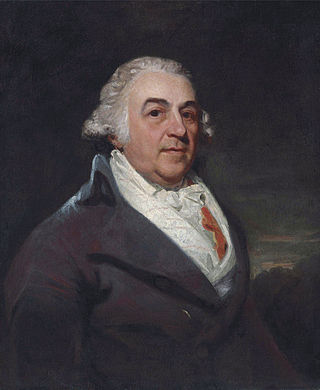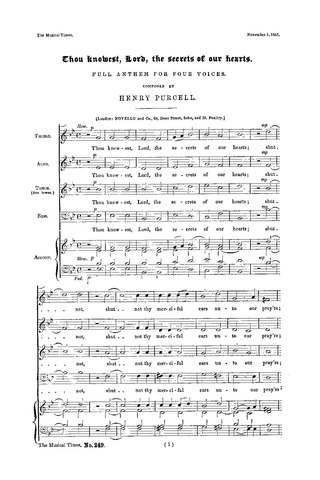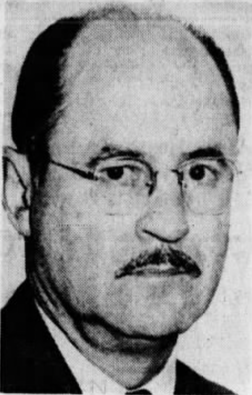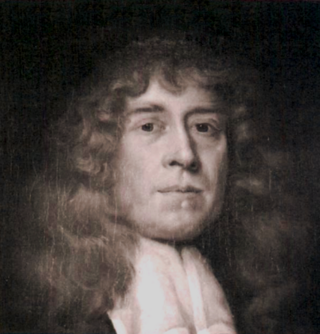Related Research Articles

Henry Purcell was an English composer of Baroque music.
Remo Giazotto was an Italian musicologist, music critic, and composer, mostly known through his systematic catalogue of the works of Tomaso Albinoni. He wrote biographies of Albinoni and other composers, including Antonio Vivaldi.

Dido and Aeneas is an opera in a prologue and three acts, written by the English Baroque composer Henry Purcell with a libretto by Nahum Tate. The dates of the composition and first performance of the opera are uncertain. It was composed no later than July 1688, and had been performed at Josias Priest's girls' school in London by the end of 1689. Some scholars argue for a date of composition as early as 1683. The story is based on Book IV of Virgil's Aeneid. It recounts the love of Dido, Queen of Carthage, for the Trojan hero Aeneas, and her despair when he abandons her. A monumental work in Baroque opera, Dido and Aeneas is remembered as one of Purcell's foremost theatrical works. It was also Purcell's only true opera, as well as his only all-sung dramatic work. One of the earliest known English operas, it owes much to John Blow's Venus and Adonis, both in structure and in overall effect.

Richard Bache, born in Settle, West Riding of Yorkshire, England, immigrated to Philadelphia, in the colony of Pennsylvania, where he was a businessman, a marine insurance underwriter, and later served as Postmaster-General of the American Post Office. He also was the son-in-law of Benjamin Franklin.
Richard Wernick is an American composer. He is best known for his chamber and vocal works. His composition Visions of Terror and Wonder won the 1977 Pulitzer Prize for Music.
Laurence Alexander Cummings is a British harpsichordist, organist, and conductor. He is music director of the Academy of Ancient Music.
Robert A. Wykes was an American composer of contemporary classical music and flautist.

Michael Burden, FAHA, is an Australian musicologist, working in the United Kingdom. He was elected a Corresponding Fellow of the Australian Academy of the Humanities in 2018.

Aloys and AlfonsKontarsky were German duo-pianist brothers who were associated with a number of important world premieres of contemporary works. They had an international reputation for performing modern music for two pianists, although they also performed the standard repertoire and they sometimes played separately. They were occasionally joined by their younger brother Bernhard in performances of pieces for three pianos. After suffering a stroke in 1983, Aloys retired from performing.

Sir Anthony Carey Lewis was an English musicologist, conductor, composer, and music educator. He co-founded and served as the first chief editor of Musica Britannica, producing scholarly editions of British music hitherto unavailable. He published critical editions of operas by Handel, Purcell and John Blow.
Michael Finlay Robinson is an English composer, musicologist, and academic. His scholarly work focuses on opera of the 17th and 18th centuries; and in particular the development of Italian opera during the 1700s. His publications include the books Naples and Neapolitan Opera, Opera Before Mozart, and A Thematic Catalogue of the Works of Giovanni Paisiello. He also contributed to several collaborative works, including Research Chronicle of the Royal Musical Association (1972), The New Grove Dictionary of Music and Musicians (1980) and Opera buffa in Mozart's Vienna, and to several music journals like Music & Letters and Soundings.
Thomas H. Wells is an American composer, pianist, organist, and arts-organization administrator.
Come Ye Sons of Art, Z.323, also known as Ode for Queen Mary's Birthday, is a musical composition by Henry Purcell. It was written in 1694, and is one of a series of odes in honour of the birthday of Queen Mary II of England. The text of the ode is often attributed to Nahum Tate, who was poet laureate at the time.

"Remember not, Lord, our offences", Z.50, is a five-part choral anthem by the English baroque composer Henry Purcell (1659–95). The anthem is a setting of a passage from the litany compiled by Thomas Cranmer, Archbishop of Canterbury, and later included in the Anglican Book of Common Prayer. It was composed circa 1679–82 at the beginning of Purcell's tenure as Organist and Master of the Choristers for Westminster Abbey.
Welcome to all the pleasures, Z. 339, is a 1683 composition by Henry Purcell, the first of a series he wrote in honour of the patron saint of music, Saint Cecilia. It was commissioned by an organisation called "The Musical Society" for performance in London on 22 November 1683.

"Thou knowest, Lord, the secrets of our hearts", Z. 58, designates two choral settings composed by Henry Purcell. The text is one of the Anglican funeral sentences from the Book of Common Prayer. Early versions began possibly in 1672 and were revised twice before 1680. Purcell composed his last version, in a different style, for the 1695 Music for the Funeral of Queen Mary, Z. 860.

Edgar Preston Richardson, also known as E. P. Richardson, was an American art historian, museum director, author, and curator. Richardson served as director of the Detroit Institute of Arts (1945–1962) and Winterthur Museum (1963–1966). He authored seven books, served on the boards of the Pennsylvania Academy of the Fine Arts (1966–1977) and other arts organizations, and co-founded the Archives of American Art at the Smithsonian in 1954.
Audrey Langford was an English soprano, conductor, and voice teacher. Musicologist Elizabeth Forbes wrote, "Audrey Langford will no doubt go down in musical history as a superb singing teacher over a period of 50 years, but she also had two other successful careers, as a soprano who sang at Covent Garden in the late 1930s and, after the war, as a conductor, most particularly of the Bromley Philharmonic Choir and the Kentish Opera Group, both of which organizations she founded."

George Hudson was an English violinist, lutenist, singer, and composer of Baroque music.
References
- ↑ International Biographical Centre (1982). Two-in-one Special Edition of the International Authors and Writers Who's Who, International Who's who in Poetry. International Biographical Centre.
- ↑ Manning (1990), p. 552
- ↑ Cummings (2000), p. 711
- ↑ Kennedy and Bourne (2007)
- ↑ Philadelphia Daily News (30 September 1983)